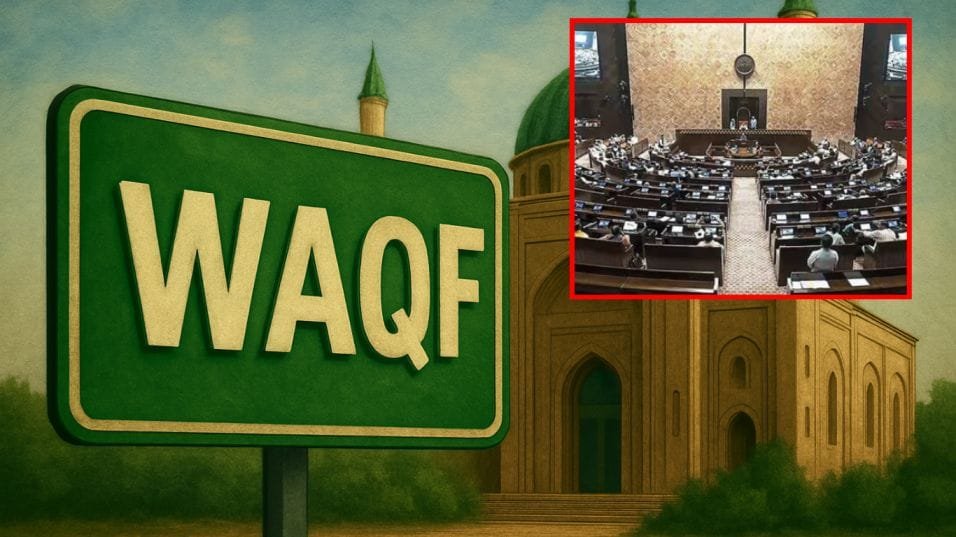Waqf Bill has passed by the both houses of Parliament. Rajya Sabha has passed the bill after 12 hours debate in the early morning of Friday, 128 vote in favor and 95 votes against.
Lok Sabha has passed the bill on Thursday, 288 vote goes in favor and 232 votes in against.
What is Waqf?
The concept Waqf comes from Islamic law and traditions. It means donation made by a Muslims for charitable purposes like buildings, schools, hospital or other public institution. Another definition of Waqf is that the property cannot be sold, gifted, inherited or taken away. Once the person who creates the Waqf (called the waqif) gives it up, the property is considered to belong to God. Since God is eternal, the Waqf property is also meant to last forever.
What is Waqf Bill 2025?
The Waqf Bill, 2025 is introduced to solve the problem in the management and governance of Waqf properties. Its aims is to make the rules easier to understand, involve more people in decisions and use Waqf properties in a better way.
Waqf Bill is the update version of Waqf Act, 1995.
What is the objective of Waqf Bill?
The objective of Waqf Bill is
Overcome the shortcomings of the previous act and enhance the efficiency of Waqf boards by introducing changes such as renaming the Act
Updating the definitions of Waqf
Improving the registration process
Increasing the role of technology in managing Waqf records.
Time Line of Waqf Bill
Non Muslims Member were included in Waqf Bill
Important Points of Waqf Bill
Purpose of the Waqf (Amendment) Bill, 2025
Aims to improve management and governance of Waqf properties.
Focuses on protecting heritage sites, ensuring transparency, and promoting social welfare.
Disputes Over Non-Muslim Properties Declared as Waqf
5973 government properties across 25 States/UTs declared as Waqf.
This has led to major disputes and legal cases in various states:
- Tamil Nadu: Farmer couldn’t sell land due to Waqf claim.
- Bihar: Sunni Waqf Board claimed an entire village; case ongoing.
- Kerala: 600 Christian families contest Waqf claim on ancestral land.
- Karnataka: 15,000 acres in Vijayapura declared Waqf; widespread protests.
- Uttar Pradesh: Allegations of corruption and mismanagement in Waqf Board.
Unlawful Property Claims by Waqf Boards
Karnataka (1975 & 2020): 40 properties including public and religious sites notified as Waqf.
Punjab Waqf Board claimed land from the Education Department in Patiala.
MoHUA flagged 361 Waqf property claims across Delhi by L&DO and DDA.
Rights and Empowerment of Muslim Women
- Promotes financial independence for Muslim women (especially widows/divorcees) through SHGs and welfare programs.
- Initiatives include:
- Scholarships for girls.
- Healthcare & maternity support.
- Skill development in fields like fashion, healthcare, entrepreneurship.
- Legal aid centers for inheritance and domestic violence cases.
- Pensions for widows.
Transparency and Digitization in Waqf Management
- Digitization of Waqf records to prevent corruption.
- Creation of a centralized digital portal for monitoring Waqf properties.
- Regular audits to ensure proper fund use.
Increased Revenue for Welfare Programs
- Preventing illegal occupation of Waqf land will increase revenue.
- More funds will support:
Healthcare
Education
Housing
Livelihood support for the poor
Administrative Reforms for Better Governance
- Improves coordination between Waqf Boards and local authorities.
- Protects stakeholder rights.
- Enhances accountability in property management.
Inclusion of Marginalized Muslim Communities
• Ensures representation of all sects in Waqf Boards:
One member each from Bohra and Aghakhani communities (if they have functioning Auqaf).
Members from backward classes, in addition to Shia and Sunni members.
At least two elected members from Panchayats or Municipalities.
Two non-Muslim members (excluding ex-officio members) for broader inclusion.

